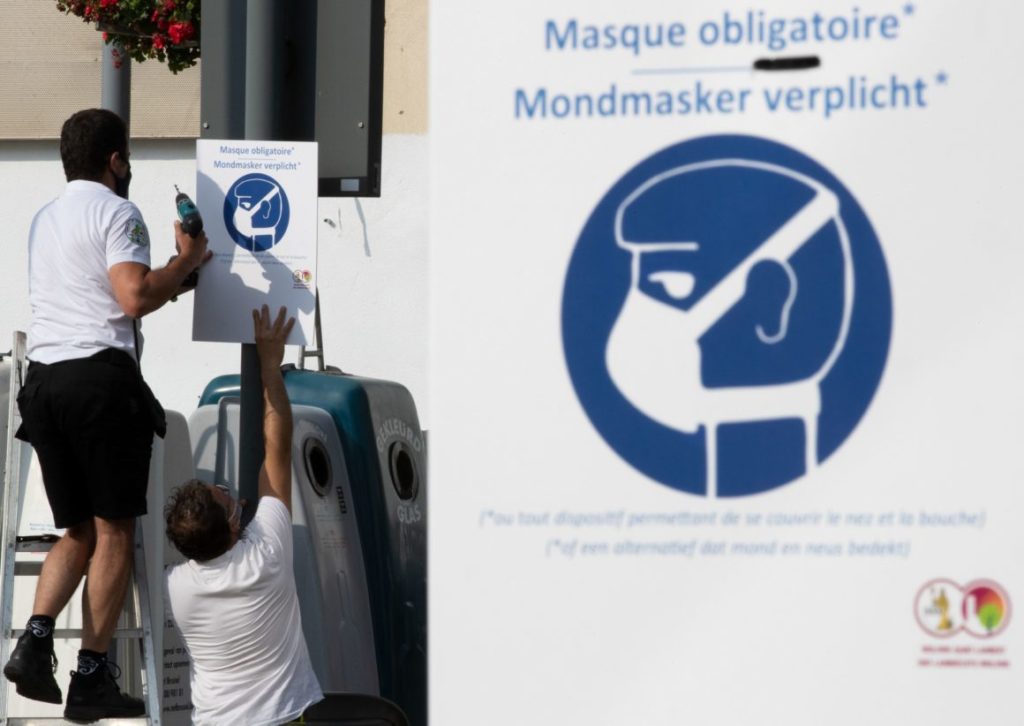As many European countries set records for new coronavirus cases with some considering vaccine mandates as a way out, England will soon drop coronavirus restrictions.
On Wednesday evening, the United Kingdom's Prime Minister Boris Johnson announced that England would be able to cautiously return to "Plan A". This will see various measures dropped as a result of a "successful vaccination programme". It will reverse the shift to "Plan B" on 8 December when cases flared up due to the Omicron variant.
“The recent decline in community case rates and individuals requiring hospitalisation is encouraging and it’s thanks to the public, who have taken up vaccination and followed the Plan B measures closely, that we’ve got to this point," Chief Medical Advisor for the UK Health Security Agency, Dr Susan Hopkins said.
From Thursday 27 January, face masks will no longer be a legal requirement in any setting, including on public transport or shops. They will be officially advised in crowded and enclosed spaces. "Any local introduction of face coverings must be subject to routine review and removed at the earliest opportunity," a government statement said.
Need to remain cautious
The UK reported its peak of daily coronavirus cases at the end of December when the seven-day average was almost 200,000 new cases. This figure has since dropped to around 90,000 (last confirmed data).
Meanwhile, more than 30.5 million booster doses have been administered in England. But for now, the number of hospitalised Covid-19 patients remains relatively high.
"We should not be complacent," Hopkins stressed. "The pandemic is not over yet and we will need to remain cautious to reduce the spread of Covid-19 in our communities."
Director-General Tedros Adhanom Ghebreyesus of the World Health Organisation (WHO) also urged caution, saying that while a peak seems to have been reached in some countries and the impression is that the worst of the last wave is over, "no country is completely out of the danger zone."
EU doubles down on Omicron
Five million new coronavirus cases were reported in Europe last week, resulting in countries looking to stricter, and ever-more polarising, measures.
On Sunday, France approved a "vaccine pass" to replace the current "health pass. " This will tighten restrictions on unvaccinated people as the country records around 300,000 new cases each day.
Austria too is recording the highest number of cases since the start of the pandemic; it announced the details for its vaccination mandate that will come into force on 1 February.
Related News
- Scrap 23:00 closing hour as soon as possible, hospitality sector says
- Forcing jab will only worsen jail overcrowding: Belgian MP
- 'Too early' for Belgium to relax rules like England, says Van Gucht
Germany, which logged more than 100,000 new infections per day for the first time on Wednesday, is limiting access to certain public spaces – including bars and restaurants – to those who have received booster jabs, are partly vaccinated, or have recovered from infection and have a negative test result.
Spain is looking towards the end of the pandemic and wants to change how it monitors the ongoing crisis, with a view to returning to normal life. On Wednesday, Prime Minister Pedro Sánchez said that the Spanish government was considering how the coronavirus can be managed more as an endemic illness.
Denmark and the Netherlands, which both had restrictions in place either on events or shops, have lifted some of the tougher measures and are looking to further relax those that remain in the coming weeks.

